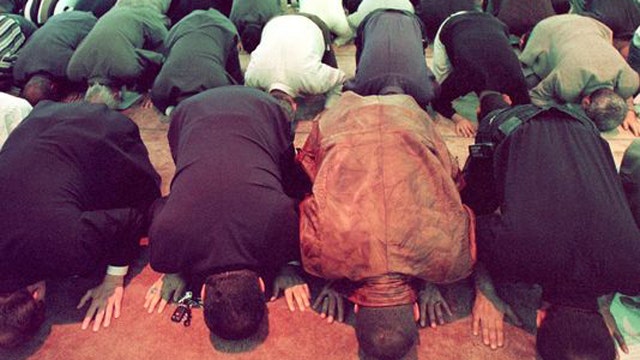Starnes: America's on a slippery slope to Sharia Law
Last weekend's terror attack in Garland, Texas has sparked a national debate over free speech, with political pundits and the mainstream media saying Pamela Geller got what she asked for. Spare me the left's righteous indignation
A young British-Pakistani woman reportedly was raped by her husband and left fearing for her and her children’s lives after a Sharia court forced to her reveal her address and to try and get back with him.
"Lubna," which is not her real name, had already obtained a legal divorce through the British courts from her violent husband, but after her mother was pressured by the Muslim community in which they lived in London, she was forced to seek a Sharia divorce as well.
First the clerics tried to persuade her to attempt a reconciliation with her abusive husband. Then, after they disclosed her address, he threatened to kill her, kidnapped her children, and subjected her to an horrific rape that left her needing an abortion, reports MailOnline.
EYE FOR AN EYE? IRANIAN THUG BLINDED FOR THROWING ACID IN 4-YEAR-OLD GIRL'S FACE
Lubna, who was brought up in the north of England in a middle-class family, reportedly was sexually and physically abused by her husband – who she joined with under an arranged marriage.
But after he left her to pursue a new life in America with a new woman, Lubna decided she would file for divorce through the British legal system.
WOMEN UNITE TO TAKE 'HONOR' OUT OF KILLING IN PAKISTAN
She was given a restraining order to protect her from her furious husband – who had returned to the UK to fight the split – and was granted custody of their children.
Her nightmare began however when her estranged husband told a prayer meeting at her local east London mosque that she was a “loose women being pimped out by her widowed mother”.
Although at least one imam knew the horrific background to her marriage, a group from the mosque visited her family to persuade her to return. When that failed, the imam, an old family friend, put more pressure on Lubna to go to the Sharia court near London’s Regent’s Park.
To avoid shaming her devout Muslim mother Lubna agreed but the “judges” didn’t care about the plight she’d suffered at her violent ex’s hands and repeatedly told the young woman and her mother to be “silent”.
Speaking to the One Law for All campaign which is working to ban Sharia courts to improve Muslim women’s rights, Lubna said: “The court was incredibly difficult. My mother and I were repeatedly told to be silent. None of the information from the civil proceedings, including non-molestation orders, was admissible in the Sharia court.
“When my ex-husband said he wanted a reconciliation, the judges said I should comply.
More from The Sun
“I tried to tell them about the violence and abuse I had suffered throughout the marriage, but was advised to be quiet. My mother was also silenced.”
She faced intrusive questioning about the last time she had sex with her husband – crucial, the judges told her, to determine exactly when their relationship had ended. She was also forced to disclose her address.
Astonishingly however when Lubna’s mum sought advice from Islamic scholars in Pakistan and India – they told her a civil divorce was sufficient to end the marriage.
As a result they never finished the Sharia divorce and the young Muslim went on to try and rebuild her life.
For more than 30 years Sharia courts enforcing Islamic law have been operating quietly across Britain. But two official inquiries have put them in the spotlight amid accusations that they discriminate against women.
Very little is known about them, even their number. One study by the University of Reading puts it at 30, while the British think tank Civitas estimates there could be as many as 85.
Sharia courts or councils, as they prefer to be called, mainly pronounce on Islamic divorces, which today make up 90 percent of the cases they handle.
They range from groups of Muslim scholars attached to a mosque, to informal organizations or even a single imam.
But while they are aimed at helping resolve family and sometimes commercial conflicts within the Muslim community, some stand accused of undermining women’s rights.
Campaigners cite instances where courts have refused to grant religious divorces to women who are victims of domestic abuse, and accuse them of legitimizing violence, including marital rape, as was the case with Lubna.








































